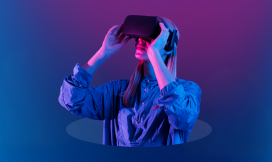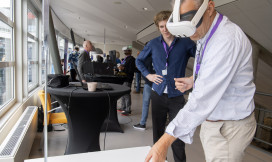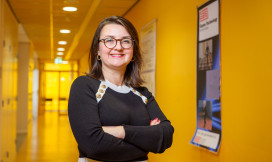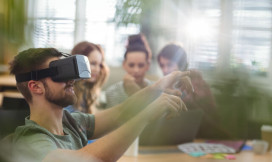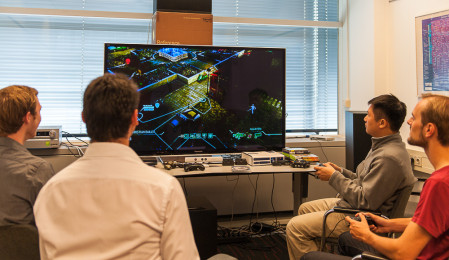XR (extended reality)
XR is een technologie in ontwikkeling op uiteenlopende gebieden. Van het onderwijs, onderzoek, medisch onderwijs tot aan defensie maakt gebruik van XR. Wat zijn de mogelijkheden, kansen, en toepassingen van extended reality voor het onderwijs en onderzoek?
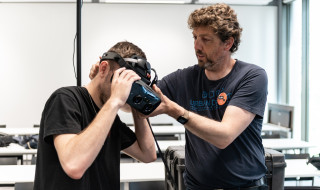
Na een succesvol Tech Trends Rapport in 2023 staat SURF op het punt om het trendrapport voor 2025-2026 te gaan maken en jij kunt daar deel van uitmaken!
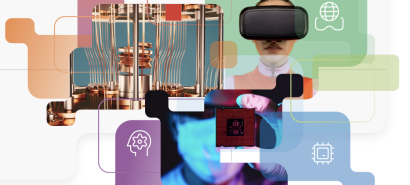
Nieuws
Update XR-trends
NieuwsIn dit rapport geeft SURF een overzicht van de recente XR-trends in onderwijs en onderzoek, gezien de ontwikkelingen in de afgelopen twee jaar. Sommige ontwikkelingen zijn snel gegaan, terwijl andere…
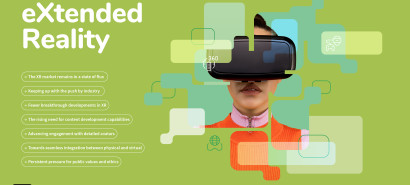
Nieuws
Het gebruik van VR in chemische practica heeft drie voordelen.
